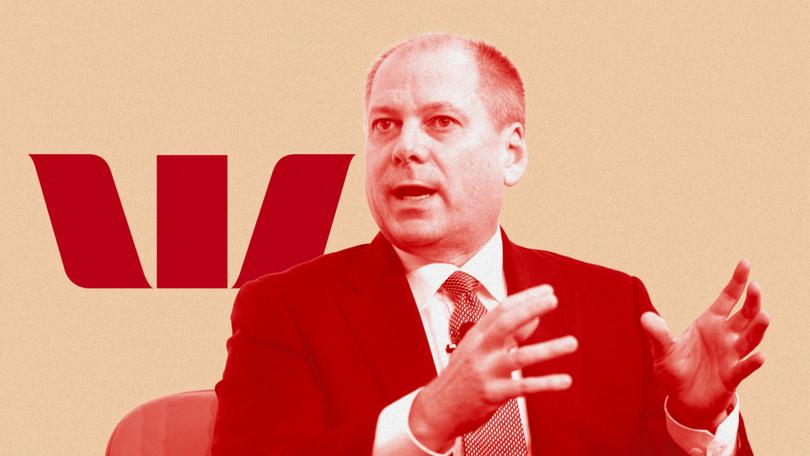Outgoing Westpac chief executive Peter King reckons cost-of-living crisis could have peaked
An outgoing boss from one of the big four banks says the cost-of-living crisis may have passed its worst point.

Westpac chief executive Peter King is signing off from the bank with a small profit fall but an encouraging belief that Australia’s cost-of-living crisis could have peaked.
Mr King, who will step down by the end of 2024 after five years running the bank, said on Monday Westpac’s assistance packages for hard-pressed home borrowers had been falling since June amid a brightening outlook for the economy ahead of expected interest rate cuts in early 2025.
“Consumer sentiment has risen to a 2½-year high, the labour market is holding up well and inflation is nearing target,” he said.
Sign up to The Nightly's newsletters.
Get the first look at the digital newspaper, curated daily stories and breaking headlines delivered to your inbox.
By continuing you agree to our Terms and Privacy Policy.“However, we recognise some customers are facing difficult choices.”
Mr King said Westpac helped out 47,500 borrowers with mainly short-term assistance packages, including loan deferrals, during the year, but it now sees customers’ repayment pressures seemingly easing.
“We did see hardship packages peak in June, and they’re starting to come down,” he said after announcing a 3 per cent fall in Westpac’s annual profit to $7 billion.
“That says to me, that a lot of people have got used to these higher levels of interest rates.”
He said also that many customers had built up buffers, both getting ahead on mortgage repayments and saving more.
“There are signs that things will be a little more positive” for households next year, with Mr King citing the broader economic improvement and an expected run of rate cuts from February that would provide relief to customers but reduce the bank’s margins.
“Combined with an undersupply of housing, population growth and limited spare capacity across much of the business sector, we expect solid demand for both housing and business credit in 2025,” he said.
Mr King said he was handing over “a simpler, stronger bank” to his successor, former business banking boss Anthony Miller.
The Westpac result was still better than most expected, with the bank blaming the profit decline on costs associated with a technology overhaul that outweighed improved loan margins.
Nonetheless, the bank lifted its final dividend 6 per cent to 76¢ a share and extended a share buyback by $1b, nudging its shares higher. The stock closed 0.8 per cent up at $32.40.
Westpac’s net interest income improved a modest 3 per cent to $18.9b, with business loan volumes up 7 per cent and housing loans increasing 3 per cent to give the bank 21 per cent of the mortgage market behind leader Commonwealth Bank.
Total loans, including business, were 4 per cent higher at $807b. Deposits grew 5 per cent to $674b as customers took advantage of better rates to beef up accounts.
However, the bank’s costs were also higher, jumping 7 per cent on the back of the technology upgrade and increased wages.
The increased competition in mortgage lending hurt profits in the consumer division, where after-tax earnings fell 17 per cent to $2.18b.
The business and wealth arm was 13 per cent better at $2.36b, thanks to increased lending in its key markets of agriculture, health and professional services.
Institutional banking profits were just 2 per cent up at $1.37b.
